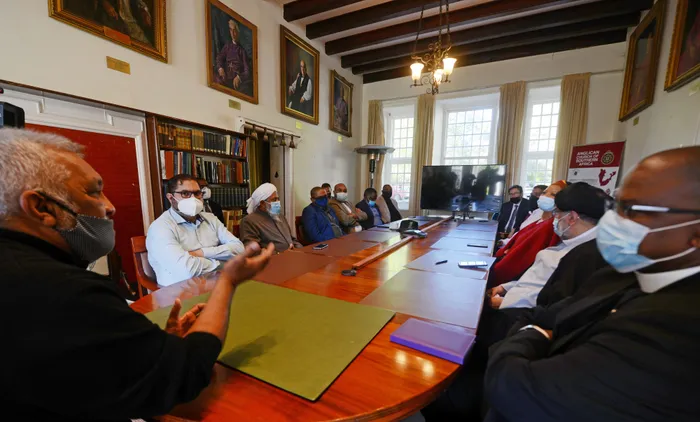Electoral referee helps keep poll fight clean

The Electoral Code of Conduct Observer Commission (ECCOC), met with political parties in Bishopscourt on Wednesday October 6.
With plenty at stake for the candidates slugging it out in this year’s municipal elections, things can get ugly, but the Electoral Code of Conduct Observer Commission (ECCOC) will help to keep the gloves on.
The commission - made up of religious and civil society leaders and co-chaired by Anglican Archbishop Thabo Makgoba and Catholic Archbishop Stephen Brislin - tries to resolve disputes between parties before they get nasty.
It held its first meeting with the, provincial parties liaison committee at the beginning of September, shortly after the November 1 election date was announced, and the most recent meeting took pace on Wednesday October 6 at Archbishop Makgoba’s Bishopscourt home. It was chaired by Peter John Pearson, head of the parliamentary liaison office of the Southern African Catholic Bishops’ Conference, in the absence of Archbishop Makgoba.
The ECCOC, has been operating since 1999 and works with the Electoral Commission of South Africa (IEC). It has 20 members, including its two co-chairs and four IEC representatives.
“There is often hostility between the political parties at the grassroots level because there's a lot at stake and passions are running very high. If there are issues, then a working sub-committee is created and a meeting is called,” said Micky Glass, a founding member of the ECCOC.
Meetings were usually held every week in run-up to national or local elections, he said.
“Some examples of problems coming up during the run-up to elections include party disputes with the IEC, removal of posters and intimidation. On the actual day of the election, there are issues such as loud music, voters being transported in large numbers to voting stations, the position of voting boxes, lack of screens to protect voter privacy, party observers being intimidating, voter interference and chaotic lines.”
The ECCOC’s role is to then observe these issues and report back to the IEC, while finding a way to resolve the problems.
Reverend Lionel Louw, another founding member, recalled an incident in the 2019 national election where the ECCOC had intervened following a dispute in a community that had led to the entire community vowing not to vote.
“Upon hearing this, ECCOC members decided to visit all the voting stations on election day, in this community,” he said, adding that the members had spoken to the IEC and election officials before leading a prayer with the unhappy residents to restore peace in the community.
“The ECCOC members then left the community, to continue their duties as observers throughout the province and found out, at the close of election day, that all those who were protesting to not vote had, in fact, turned out and placed their votes,” he said.
The ECCOC had a unique role because it was apolitical and brought a sense of purpose and trust to the people, he said.
“When a ECCOC member turns up, irresepective of being a Christian, Muslim, Jewish or Hindu, it changes the atmosphere and offers a spiritual, ethical presence that makes a difference,” he said.